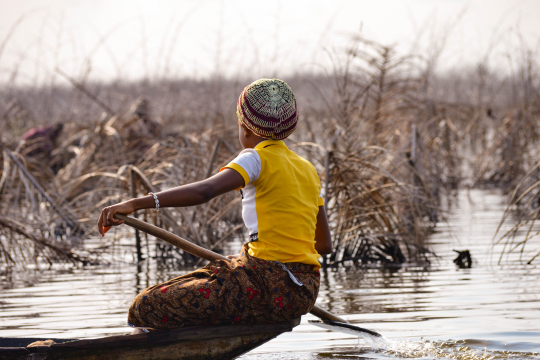The Natural Capital (NatCap) collaborative focuses on ecosystem valuation including water systems and sustainable agriculture. The revamped program is an expansion of the collaborative program Ecosystem Services Accounting for Development (ESAforD). During 2021 the NatCap collaborative found its natural base at EfD South Africa, the Environmental Policy Research Unit (EPRU), hosted by the University of Cape Town.
The Natural Capital (NatCap) collaborative was founded in 2021 and aims to improve the knowledge and empirical experience of valuing ecosystem services and biodiversity, water systems, and sustainable agriculture in order to better account for these services throughout the Global South. NatCap continues to attract new and established researchers who are dedicated and passionate about the field of environmental economics and are focused on effecting change. This will be done through dedicated research within three research pillars and through collaboration with researchers throughout the global EfD network. The focus of NatCap is to fill the gaps within the environmental economics literature with policy-impacting research for the Global South. Though NatCap’s research primarily targets challenges in the environmental sector, NatCap’s overarching social ambitions include goals to help issues surrounding the reduction of poverty and improving gender equality.
“The NatCap Collaborative is part of an exciting rebranding exercise for EPRU. We hope the unit will now function as a hub in EfD for research and impact related to Natural Capital,” says Martine Visser, director of EfD South Africa and NatCap.
Three research pillars
The NatCap collaborative aims to achieve its goals under three distinct initiatives or research themes, mentioned above. Virtually every country within the Global South suffers from environmental and social problems stemming from at least one, if not all, of these themes. The need for inclusive holistic research that considers the nature of communities, countries, and regions is critical in affecting substantial, meaningful change.
“While EPRU and other units in EfD have a long history of working on these themes, NatCap brings together synergies in the whole of EfD. This will facilitate more focused efforts around obtaining large research grants and enable internal capacity development. We expect a more dynamic reach in terms of disseminating our research findings to larger audiences, especially to academics, policymakers, implementation agencies and communities of stakeholders who might benefit via this knowledge sharing,” explains Martine Visser.
Ecosystem Services and Biodiversity
Biodiversity and ecosystem services (e.g. food and fuel resources provided by nature, hydrological cycle regulation, soil erosion control) are essential to human wellbeing. However, despite their importance, biodiversity and ecosystem services are not included in national accounts of wealth such as Gross Domestic Product (GDP) or landscape planning. A large knowledge gap exists throughout the Global South when accounting for biodiversity and ecosystem services. This requires local and regional connections with policymakers to implement sustainable practices. NatCap aims to address the knowledge gap of research into the application of the UN’s System of Environmental-Economic Accounting (SEEA) to inform methodologies of improved solutions for integrating biodiversity and ecosystem services into the National Accounts.
Water Systems
Access to water, water conservation efforts, and payment for water, are rife with inequality in the Global South. As it stands 2.2 billion people still lack access to clean drinking water. As climate change continues to intensify the shifts in global weather patterns causing an increase in droughts and floods, the need for novel solutions to dealing with the supply and demand of water is vital. This is in line with the UN’s SDG6 of providing sustainable water and sanitation for all. NatCap aims to identify and explore the ever-growing problem of water scarcity and cleanliness throughout the Global South and in turn contribute to the resilience and sustainability of human settlements (SDG11) through improved water management.
Sustainable Agriculture
The need for sustainable agriculture is clear, as billions of people in the Global South are without food or are unable to eat a healthy balanced diet regularly. NatCap is determined to do its part in reaching the UN’s SDG2 of ending global hunger by 2030. NatCap will therefore serve as a collaborative space for leading researchers from different backgrounds to investigate sustainable agriculture practices that are cost-effective, reliable, and repeatable.
Impacts on policy
Fostering relationships between policymakers and stakeholders from different regions is vital going forward. This ensures that the generation of new potential policies can center around the gaps and opportunities made clear by the local perspective that NatCap aims to highlight.
“NatCap must work with vigor and determination to engage with policymakers to expedite policy changes before potential governmental reshuffles as well as institutions and organizations to facilitate internal policy changes outside of legal requirements,” says Martine Visser.
NatCap recognizes that policymakers from different countries need to interact with one another in a climate-focused space to facilitate the implementation of effective policies across borders and regions.
If you are interested in participating in this collaborative program, contact: Prof Martine Visser (maritne.visser@uct.ac.za)
